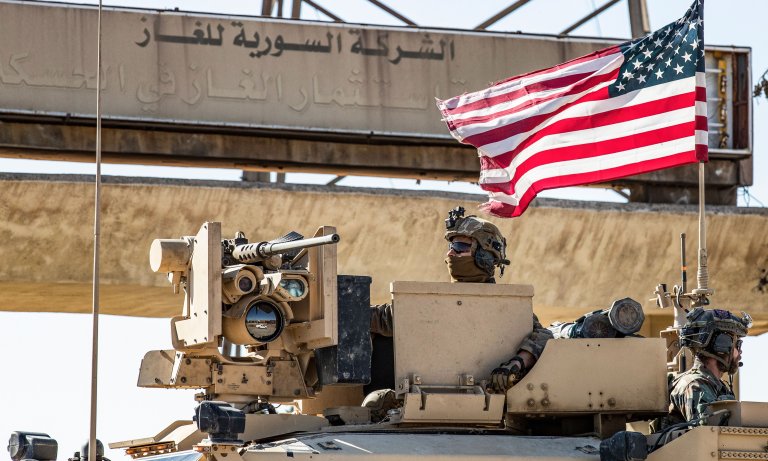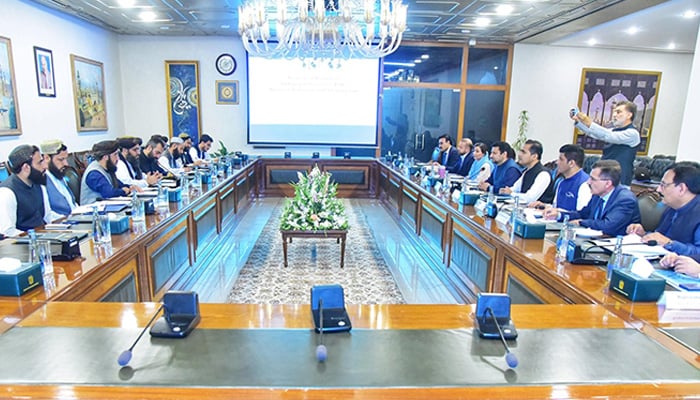By Tahir Masood (Rafa’el)
Foreign Correspondent – Ireland
Daily Capital Times
The United States’ military strike on Iran may prove to be one of the gravest strategic
miscalculations of the 21st century. What was intended as a swift display of dominance has
instead become a plunge into a geopolitical quagmire—carefully set and triggered by those
who understand America’s weakening economic and diplomatic pulse better than the
Americans themselves. Once again, history repeats itself—not as a whisper, but as a
resounding alarm.
The neoconservative alliance, heavily influenced by Zionist ambitions, has long yearned for
a decisive confrontation with Iran. Their ultimate aim: to dismantle any regional threat to
Israel and to reinstall a pro-Western regime in Tehran. In their desperation to protect Israeli
interests, they have succeeded in pushing President Trump and his successors into a
confrontation whose consequences may now spiral beyond their control.
The United States is no longer the robust power it was during the invasions of Iraq and
Afghanistan. The American economy, once resilient enough to support multi-decade wars,
now stumbles under the weight of inflation, partisan chaos, and external debts. The golden
era of American imperial reach is behind us. What remains is the shadow of a former
hegemony still swinging wildly, unaware it has lost its footing.
History offers a powerful comparison. At the peak of Aurangzeb Alamgir’s reign, the Mughal
Empire appeared unassailable. Yet, continuous wars with the Marathas slowly drained the
empire’s strength, corroding it from the inside. Likewise, the Iraq and Afghanistan campaigns
sapped the United States of moral authority, financial stamina, and strategic clarity. The wars
exposed a pattern: you may win battles, but lose the future.
The American assault may have damaged Iran’s nuclear facilities, but it has failed to topple
the regime or break its will. Iran is not Saddam’s Iraq or the Taliban’s Afghanistan. It is a
resilient civilization with deep-rooted ideology, military capability, and strategic patience.
Tehran has not only survived four decades of sanctions and covert sabotage, but has
evolved into a lethal hybrid force with missile technology, asymmetric warfare expertise, and
nuclear ambiguity.
The closure of the Strait of Hormuz, already being whispered in Iranian corridors of power,
would paralyze a significant chunk of the global oil supply. American military bases in the
region will likely become prime targets. Proxy militias from Iraq, Lebanon, Syria, and Yemen
are already prepared for activation. What started as a surgical strike may explode into a
full-scale regional war—with global consequences.
Unlike previous American wars in the Middle East, this time the global power equation is
different. The world is no longer unipolar. China and Russia are no longer spectators—they
are strategic stakeholders. Beijing, tied to Tehran through its Belt and Road ambitions and
massive oil contracts, is unlikely to sit idle. Moscow sees any Western destabilization of Iran
as a threat to its own security buffer. Both countries may not confront Washington directly,
but their indirect involvement—through arms, intelligence, and diplomatic resistance—will
weigh heavily.
Pakistan’s military establishment, often underestimated in Western discourse, is playing a
quiet but critical game. The generals are pragmatic, and well aware of the U.S.’s fiscal
fragility and China’s emerging global leverage. Gone are the days when Washington’s favor
was courted blindly. Today, Islamabad leans subtly toward Beijing and Moscow—not out of
ideology, but out of survival and strategy.
Pakistan’s interest lies in preventing the emergence of an anti-Pakistan regime in Iran. Like
in Afghanistan, where Islamabad backed the Taliban with plausible deniability, a similar
“silent strategy” is expected. Militias, political funding, intelligence-sharing—these are tools
already tested and mastered. “Allah Ditta” will once again collect the dollars, but this time
he’ll also ensure America gets a bruising, much like it did in the hills of Tora Bora, where the
stick was Pakistani and the hand was Haqqani.
Israel, fearing Iranian encirclement through Hezbollah in the north and the IRGC in Syria,
has long lobbied for a decisive war. But its desire for security may prove to be short-sighted.
By dragging the U.S. into a confrontation with Iran, it has accelerated a regional explosion
that could backfire. The very missile salvos aimed at American interests will eventually be
redirected at Israeli targets as well. Israel may have succeeded in lighting the match, but it
has no control over the direction or strength of the fire.
Amid this escalating conflict, a subtle but telling diplomatic move has come from Islamabad.
Pakistan’s nomination of former U.S. President Donald Trump for the Nobel Peace Prize
may appear symbolic on the surface, but in the language of realpolitik, it sends a nuanced
message. It positions Pakistan not just as a regional stakeholder, but as a potential bridge
between Washington and Beijing in the event that formal diplomacy is disrupted.
In a world of shifting alliances, silent messages matter. The Nobel nomination could function
as a political olive branch—a reminder that while tensions boil in the Persian Gulf and
Taiwan Strait, there still exist neutral actors capable of shuttle diplomacy. Pakistan, with its
deep military ties to China and long-standing strategic relationship with the U.S., is uniquely
positioned to mediate if global diplomacy begins to unravel.
The most dangerous development in this unfolding crisis is not what we know, but what we
don’t. No one fully realized the extent of Iran’s missile capabilities until now. Few believed
Iran had quietly crossed the nuclear threshold or had already conducted a covert successful
test elsewhere with the support of another power. In attacking like a drunken elephant, the
United States may have provided Iran with the justification it long sought—to play its nuclear
card openly.
In this volatile climate, even the slightest miscalculation could ignite a global confrontation.
Much is about to unfold—and this time, the war will not stay confined to deserts and
mountains. The fire may very well leap across seas and borders, reaching back to those who
believed they were untouchable. Iran is no longer a passive target—it is the epicenter of a
historic shift.




